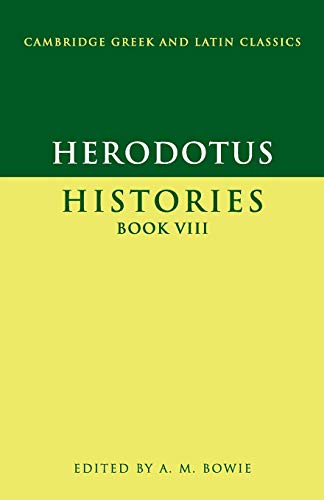Race and Ethnicity Commentary - GREK 301 - S23
Race and Ethnicity Commentary

Key Details
- Due: March 21, 12:30 PM
- Format: Google Docs (share with me via email)
- Possible Points: 150
Over the course of this semester, we will be working on a series of commentaries on an important passage from Book 8 of Herodotus’ Histories in which the historian defines what it means to be Greek. The point of doing these various commentaries on 8.144 is to investigate different aspects - grammatical, historical, contextual, and cultural - of the passage in order to dig deeper into its meaning.
While for the first commentary that you will do on Herodotus 8.144 this semester was be grammatical in nature, your second commentary will focus on what the passage reflects about the topics that we have been talking about most in class: race and ethnicity. Your job here will be to draw out the ways in which race and ethnicity are constructed in this passage by commenting on specific phrases and words in the passage and connecting them to both ancient and modern concepts of race and ethnicity. You will want to explain the similarities and differences between the vision of Greekness that you find this passage with ancient and modern discussion of racial/ethnic difference. You can imagine your project as a guide for college students who are seeking to understand how race and ethnicity in the ancient world.
Because the topic is more open-ended, you can imagine that you may have fewer comments on the passage in comparison with the grammatical commentary, but that the comments that you offered will be longer and more substantive in this particular version of the commentary.
In order to make an effective commentary, you will have to consult some external sources on race and ethnicity in the ancient modern world. You can certainly consult readings that we have done for class like Omi and Winant, McCoskey, Samuels, and Derbew, but it will necessary to have look at the readings linked below:
1) Racecraft (Fields and Fields 2011 on the construction of race particularly with respect to science and the metaphor of blood) 2) Race and Sexuality (Murray 2020 on the construction of race and the process of racialization in the ancient world) 3) Athenian authochtony (Rosivach 1987 on the myth of Athenian autochtony)
In terms of nuts and bolts of what you will need to submit, please include in the Google Doc that you submit a) the passage in Greek; b) your commentary with in-text citations from the above works; c) a works cited below the commentary.
Just as reminder, here are some principles to bear in mind as you work through your commentary:
1) You do not need to comment on everything – you can and should be selective in the things that you choose to write about. I would rather you investigate a few things in depth than superficially touch a large number of topics. (NB: the exception to this rule is the grammatical commentary - you will want to explain in detail the grammatical features of the passage).
2) Focus on small details before moving onto larger questions. This might mean taking a deep-dive into a particular word/letter or an obscure figure. Often, it is these smaller observations that can produce far-reaching insights.
3) Commentary entries can take many forms. They may be informative (i.e. explaining a factual situation); they may be interpretive; they may be exploratory. One of the fun parts about creating a commentary is that you don’t have to arrive at a definite answer, your job is to help the reader understand the nuances and complexities of the text.
Assessment
A successful project will:
- Be shared with me on Google Docs by March 21 at 12:30 PM
- Reflect on how specific Greek words and phrases connect with ancient conceptions of race and ethnicity
- Reflect on how specific Greek words and phrases connect with modern conceptions of race and ethnicity
- Cite modern scholarships on race and ethnicity in your commentary
- Feature a works cited